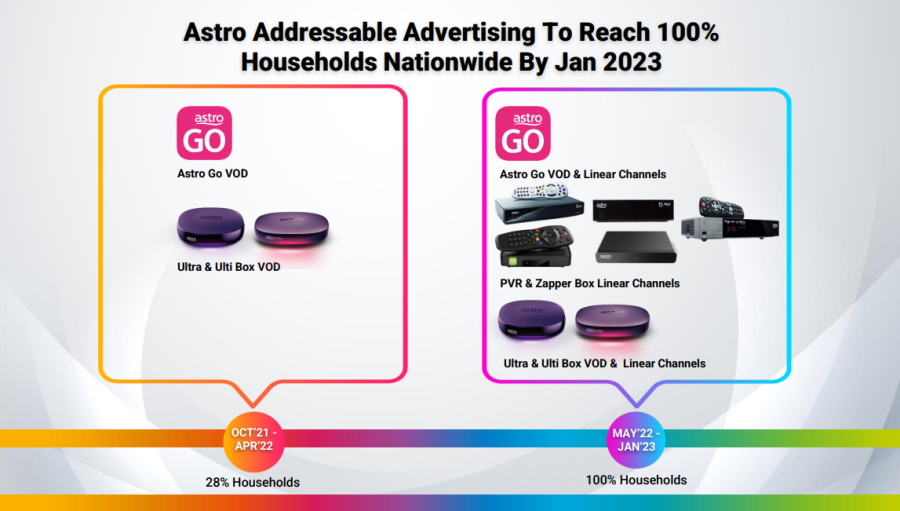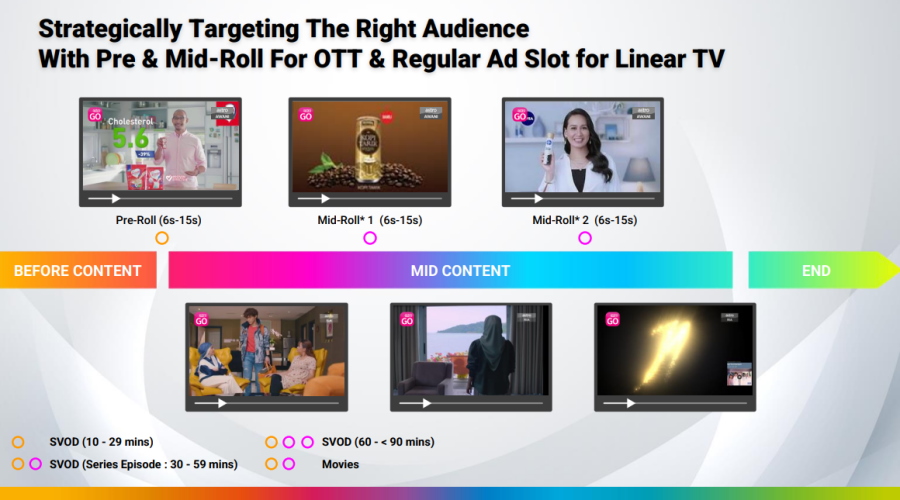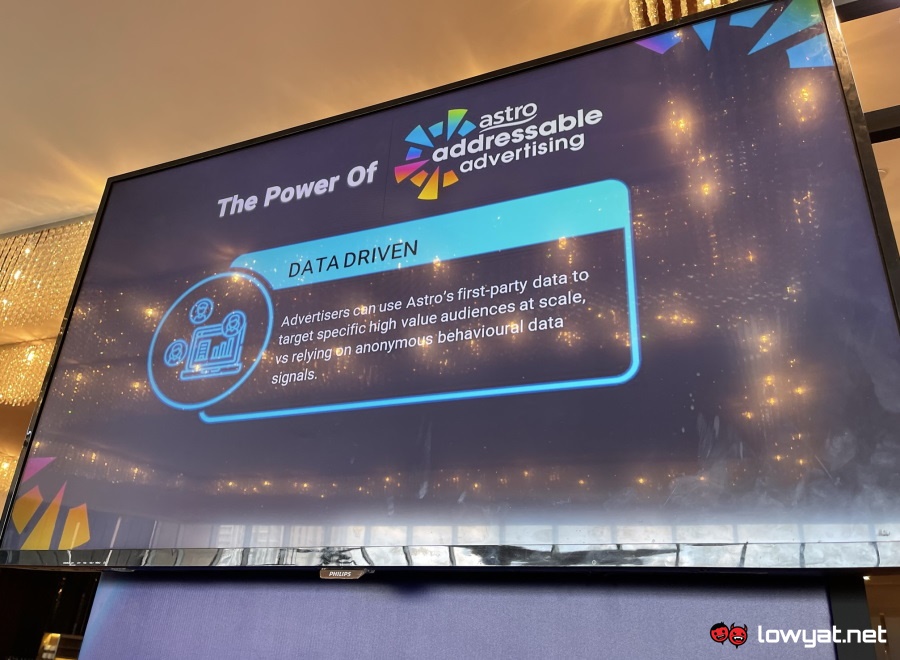In a lot of ways, it is similar to the targeted advertisement that you may encounter on social media platforms. In an announcement last week, Astro noted that the implementation is taking place in stages starting this month. Here is what it looks like in action: While it was only last week that the company organized a trade event for the advertising and marketing industry to talk about it extensively, Astro has been dabbling with the technology for quite some time. Before the official joint announcement with technology provider Synamedia Iris in December 2021, it has been mentioned in the company’s 3QFY22 financial report [pdf] in October. The company claimed that it is the first in Southeast Asia to roll out this technology and has already implemented the technology for on-demand content on Astro GO as well as the Astro Ultra Box and Ulti Box. According to the presentation deck on Astro Media Solutions’ website [pdf], the company aims to complete the rollout of the tech on its linear TV by January 2023. The rollout schedule of Astro’s addressable advertising technology. [Image: Astro Media Solutions – pdf.]To determine the recipient of a specific advertisement, Astro identifies its customers according to several segments including demographics, income group, geography, home types, and purchase behaviour. It is also working to include interest and fandom into the list as well. Naturally, the question of privacy comes into the picture. Shafiq Abdul Jabbar, Group Chief Financial Officer of Astro told Lowyat.NET at last week’s trade event that privacy is nothing new to the company as it has been dealing with and protecting millions of customers’ data over the years. He insists that Astro has no intention to sell personal data but what actually is being offered through the addressable advertising technology is audiences. Using a group of Liverpool fans as an example of the so-called audiences, advertisers will not have access to the details of these fans, according to Shafiq. The Founding Partner of Innov8TV Limited, Jamie West who was one of the experts that Astro has brought over to its trade event further added that the addressable advertising technology for TV is a closed ecosystem. This means that no device ID, IP address or anything similar in nature would go out in the open. This slide showed the general location of advertisements within Astro’s broadcast. [Image: Astro Media Solutions – pdf.]Essentially, the main thing that advertisers can access is the number of households that fit the audience criteria that they are looking for. The figures would likely be independently verified but that’s about it, says Jamie who has spent more than a decade at Sky looking after the British media company’s advertising arm. In a separate question, we have also highlighted that many customers over the years are not happy that they have to watch advertisements on Astro despite it being a paid service. In addition to that, on-demand content doesn’t usually have advertisements as well. Shafiq said that Astro is similar to many operators throughout the world such as Sky in the UK and Australia’s Foxtel which runs subscription service with ads. As for whether Astro is putting too many ads to the point of ad fatigue, the company has always abided by local content laws including the maximum duration of advertisements that a broadcaster can put within an hour. That being said, the GCFO admittedly pointed out that some advertisements that are delivered through the existing distribution model could be completely irrelevant to viewers to the extent of being an annoyance and distracting. Hence, in his opinion, the addressable advertising technology might be able to counter that.
When it comes to on-demand, Shafiq said that Astro is always mindful of the balance between content and advertisements. It is something that requires trial and error; hence, the company would tweak things around if they found that their implementation hurts customers’ experience. Given that the company has an average daily viewers of 11.3 million for its linear TV according to its Q4Y22 report, it seems that Astro has just gained yet another potent tool in its pocket. On the other hand, we are still doubtful that the complaints from Astro customers about having to see advertisements on a premium pay-TV service would go away anytime soon.




